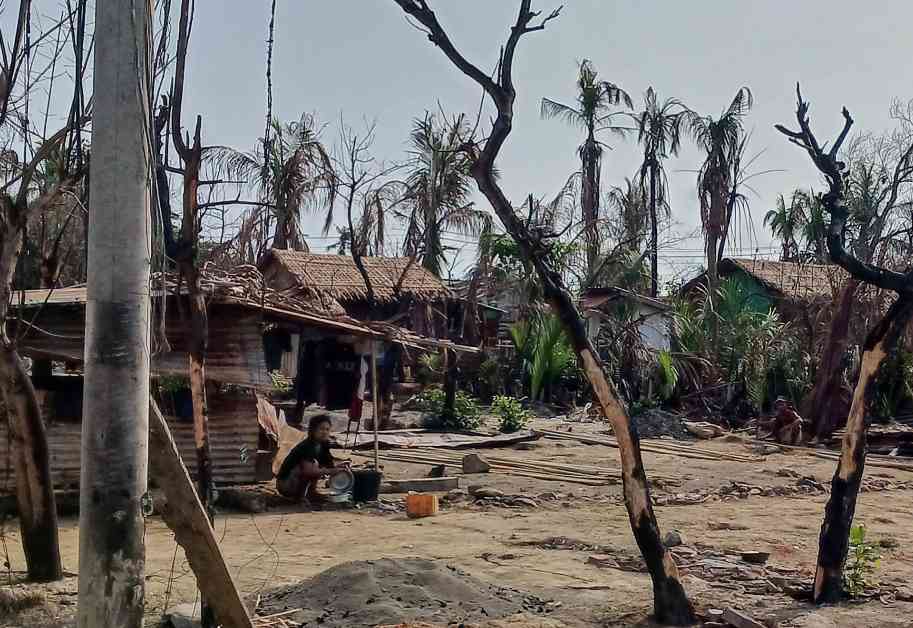Medical charity MSF has issued a warning about the escalating conflict in western Rakhine State, which has led to a surge of Rohingya refugees fleeing to Bangladesh. The conflict between the military and the Arakan Army (AA) has resulted in an increasing number of Rohingya arriving in Bangladesh with war-related injuries. According to MSF, its teams in Cox’s Bazar treated 39 people for conflict-related injuries in just four days, with more than 40 percent of the injured being women and children.
The staff at the clinic noted that it was the first time in a year that they had seen such serious injuries on such a large scale. Orla Murphy, MSF’s country representative in Bangladesh, expressed growing concerns about the impact of the conflict on Rohingya people. She emphasized that the safe space for civilians in Myanmar is rapidly shrinking, forcing people to make dangerous journeys to Bangladesh in search of safety.
The Rohingya population has long faced discrimination and ethnic violence in Rakhine, with many fleeing to Bangladesh in 2017 after a brutal crackdown by the Myanmar military. The ongoing fighting in Rakhine has intensified in recent months, with the AA joining armed groups fighting against the military. The situation has become so dire that MSF was forced to suspend its health services in northern Rakhine.
Rohingya refugees seeking assistance in Bangladesh have reported a desperate situation in Rakhine, with many witnessing horrific acts of violence and death. Some refugees described seeing people being bombed while trying to escape to Bangladesh, while others spoke of seeing hundreds of dead bodies on the riverbanks. The lack of access to vital medical care and the fear of losing family members in the violence has added to the trauma experienced by the refugees.
A recent drone attack near Maungdaw resulted in the deaths of dozens of people, including a pregnant woman and her two-year-old daughter. The military and the AA have each blamed the other for the attack, further escalating tensions in the region. MSF has emphasized the need to protect civilians caught up in the conflict and ensure that those in need of medical care have access to necessary facilities.
The situation in Rakhine is dire, with civilians facing indiscriminate attacks and forced displacement. Immediate action is needed to protect the vulnerable population and provide essential medical assistance to those affected by the conflict. The international community must step up efforts to address the escalating crisis and prevent further loss of life among the Rohingya population.



























